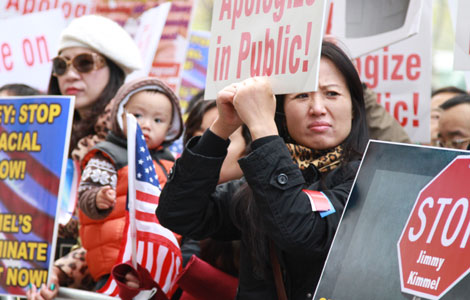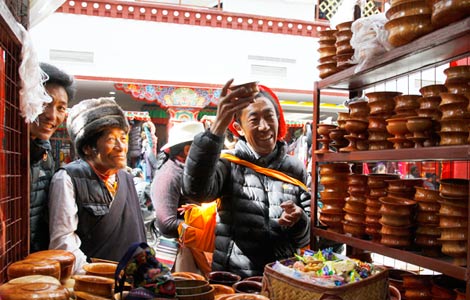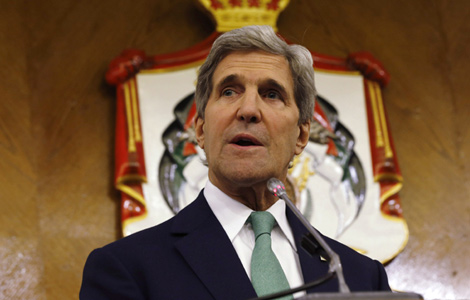Chinese land reform at crucial stage
Updated: 2013-11-09 08:09
(Xinhua)
|
||||||||
With no hukou (urban household registration) in Beijing or other big cities, migrants cannot buy houses or register cars, nor avail themselves of medical care and education.
Dismantling the hukou system would allow farmers transplanted to cities to exchange rural property rights for a more secure foothold in the metropolis. It could also provide the boost to consumption which the Chinese leadership so craves.
In a tour to the central city of Wuhan this July, President Xi Jinping listened to reports on the progress of rural equity transactions, saying that the transfer of land must be done while respecting the will of rural residents, protecting farmland, ensuring food supplies and increasing rural residents' incomes.
Xi called for further research on the relations among the ownership, contract right and management right of rural land.
Improving farmers' share of land revenue
On the back of galloping economic growth since the start of reform in 1978, China has urbanized. The urbanization rate has increased from just under 18 percent in 1978 to over 50 percent in 2012, but if you strip away migrant workers with no hukou, the "real" rate is much lower.
Speeding up urbanization is top of the agenda to boost domestic demand in a country determined to change an aged development model still based on exports and investment.
Urbanization means modernization and land reform holds the key to urbanization, claims Hu Shuli, a renowned economic columnist, in an article on South China Morning Post. Restrictions on land development must be eased; rules for land acquisition simplified; standardized registration of ownership introduced; and full rights awarded to farmers to freely trade land on the market, she said.
While farmers cannot trade their land, the law allows the government to acquire land for public use after compensating occupants, and then legally change the land use, transferring the title to real estate developers at a substantial profit. This is currently a major source of finance for some local governments.
Compensation to farmers is often insubstantial, and bred simmering discontent and friction between farmers and local governments. Compensation for one mu of land is usually between 30,000 yuan ($4,926) and 50,000 yuan ($8210) in villages while the profits at auction could be millions of yuan.
"Local government profiteering not only threatens food security but drives farmers to protest," said Zheng Fengtian.
A lot of farmland has been requisitioned in the past decade, generating enormous earnings for local governments while leaving farmers almost excluded from the revenues. The priority is to improve the farmers' share by formalizing their rights of ownership, he said. Farmers have the right to use land but no specific tenure of ownership.
Gu Yikang, a professor at Zhejiang University, suggests farmers be given deeds of ownership. For those migrant farmers living in the cities, their ownership and management rights should be guaranteed.
Giving more money to farmers means breaking the government monopoly on land supply and reducing their earnings, so resistance from local governments is likely, said Zheng.

 Chinese Americans protest Kimmel joke in NYC
Chinese Americans protest Kimmel joke in NYC
 Brand China in leading role on Transformers set
Brand China in leading role on Transformers set
 Super typhoon Haiyan slams into Philippines
Super typhoon Haiyan slams into Philippines
 Market moves to modern mall as Lhasa safeguards the past
Market moves to modern mall as Lhasa safeguards the past
 In small-town China, movies are big
In small-town China, movies are big
 A gathering of gourmets
A gathering of gourmets
 50 arrested at LA protest over Wal-Mart wages
50 arrested at LA protest over Wal-Mart wages
 Kerry to join Iran nuclear talks in bid to reach deal
Kerry to join Iran nuclear talks in bid to reach deal
Most Viewed
Editor's Picks

|

|

|

|

|

|
Today's Top News
US Oct jobless report paints dim picture
Obama's approval rating plunges to 41%
China's discipline agency targets holiday luxuries
Chinese land reform at crucial stage
Senior official at Cosco under investigation
Li appoints advisers to key govt think tank
Taxi driver is lone suspect in Taiyuan bomb blasts
Iran talks aim to close ' important gap': Kerry
US Weekly

|

|






